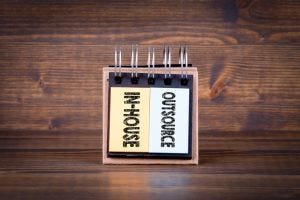
A lack of control when relying on third-party manufacturers has been a learning lesson for many cell therapy firms says TCR2 Therapeutics as it leases an 85,000 square-foot plant in Rockville, Maryland.
T-cell therapy firm TCR2 Therapeutics has entered a 15-year lease agreement for the facility at 9950 Medical Center Drive, Rockville, Maryland for a price of $39.78 per square foot, beginning July 1.
According to chief scientific officer Robert Hofmeister, the facility will help expand supply for clinical trials and potential future commercial operations for lead candidate TC-210, or gavo-cel, a therapy based on the firm’s TCR Fusion Construct (TRuC) T cell platform currently in Phase I/II trials for mesothelin-expressing solid tumors.

Image: iStock/tumsasedgars
“We believe gavo-cel and our TRuC platform have broad opportunities for solid tumors,” he told BioProcess Insider. “To support the growing clinical demand for these cellular therapies, identifying opportunities to expand our manufacturing capacity is key. We believe the Rockville facility provides ample support in this effort.”
The site was previously leased by Autolus Therapeutics back in January 2019, but last week Autolus announced it had mutually terminated the lease as part of a manufacturing reconfiguration away from the US and towards its native UK.
Therefore, Hofmeister said, “one of the unique aspects of leasing this former cell therapy facility is that we can build out from its existing footprint – we are not starting from scratch. We expect this will save us about a year. It gives us the capacity we need and will help us accelerate our timelines, which is a huge advantage.”
To support the site, the firm is adding around 175 staff, the first of which is Autolus’ Aaron Vernon who will become VP of Technical Operations at TCR2.
“Aaron has tremendous expertise in building commercial manufacturing capacity. His background and knowledge will give us a bit of head start in terms of how we approach the build out of the Rockville facility, especially since he started working on building this facility out nearly 2.5 years ago.”
Inhouse ambitions
“Our decision to lock down more manufacturing capacity was driven by strong clinical data from gavo-cel and our confidence in the TRuC platform. We need the extra capacity of the Rockville facility to help accelerate our timelines further,” said Hofmeister.
News of the plant follows manufacturing partnerships inked with ElevateBio in Waltham, Massachusetts, and the Cell & Gene Therapy CGT Catapult in Stevenage, UK. Both are centralized models that provides R&D and manufacturing capabilities to partnered companies.
However, TCR2 also relies on contract development and manufacturing organizations (CDMOs) for clinical supply, something Hofmeister told us it was working on reducing.
“With our in-house facility in Rockville and our manufacturing partnerships with ElevateBio (and CGT Catapult, we are progressing in making a pivot away from CDMO reliance. Establishing our own network is a tremendous opportunity for us to have more control over our product development, allowing us to not only be more flexible where needed but also ensure extra capacity for future.
“The lack of control when relying on CDMOs has been a learning lesson for many cell therapy companies – it has always been a goal of TCR2 to have a commercial manufacturing plant.”
With the complex manufacturing processes associated with advanced therapies and a lack of capacity for certain functions in the sector, increasingly cell and gene therapy firms are looking to establish their own facilities and thus secure control.
Cell therapy firms such as AdaptImmune and Iovance have been vocal on the merits of inhouse manufacturing, while the likes of Pfizer and Astellas have made significant investments to build their own gene therapy networks in recent years.
About the Author
You May Also Like

schedl_b_and_w.jpg?width=100&auto=webp&quality=80&disable=upscale)
schedl_b_and_w.jpg?width=400&auto=webp&quality=80&disable=upscale)



